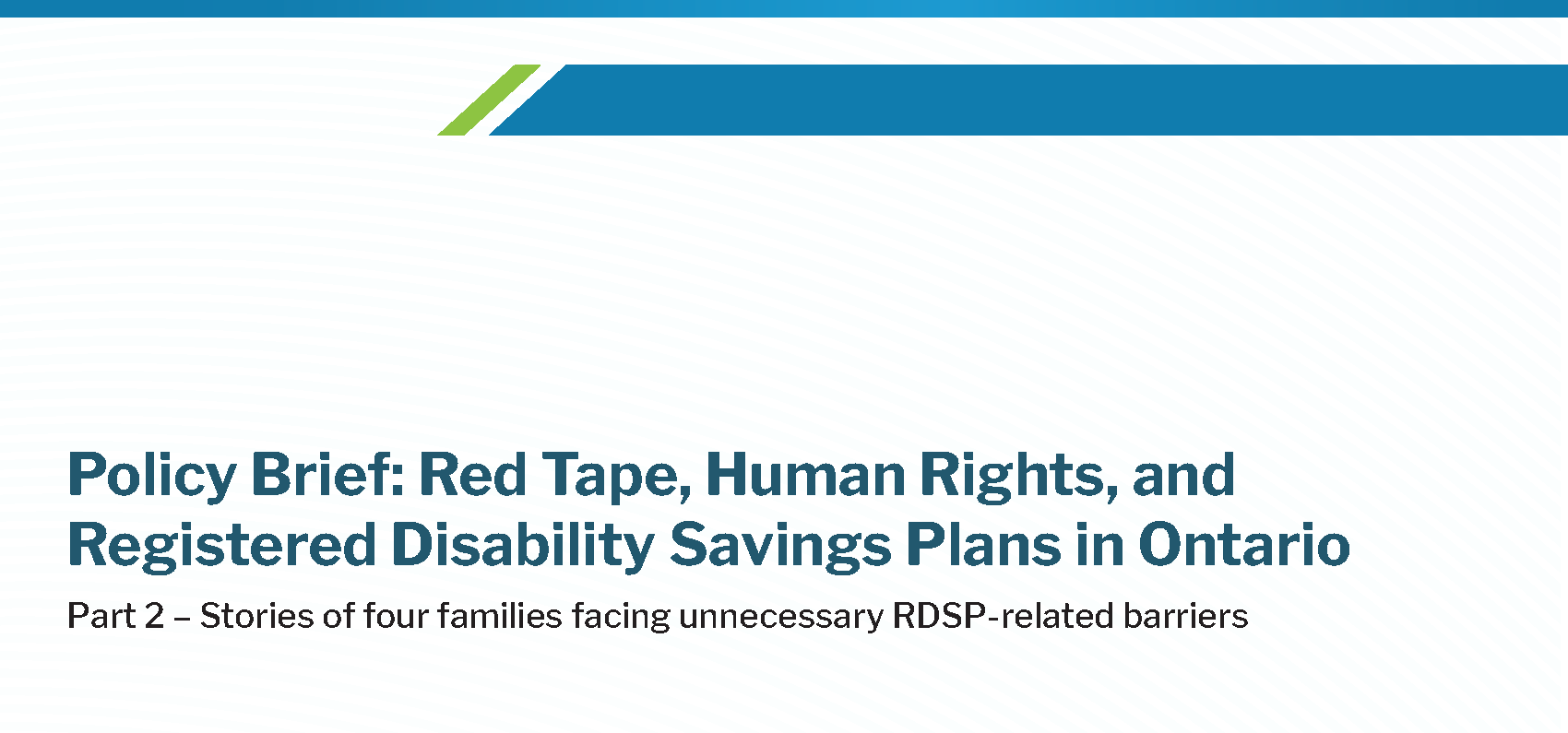Community Living Ontario develops policy solutions and advocates for changes that increase the community participation, inclusion and belonging of people labelled as having an intellectual disability. For insight on our policy positions and priorities for our advocacy work, please see the recent posts and resources below.
We work alongside people who have intellectual disabilities and their families as well as government to shape public policy that is practical and progressive. We bring a collective voice to the developmental services sector. Community Living Ontario advocates for the full inclusion of people who have intellectual disabilities in all communities.
If you are looking to learn more, reach out to Shawn Pegg, Director of Social Policy & Strategic Initiatives below.
CONTACT SHAWN
Provincial Policy Recommendations
2024 Pre-budget Submission
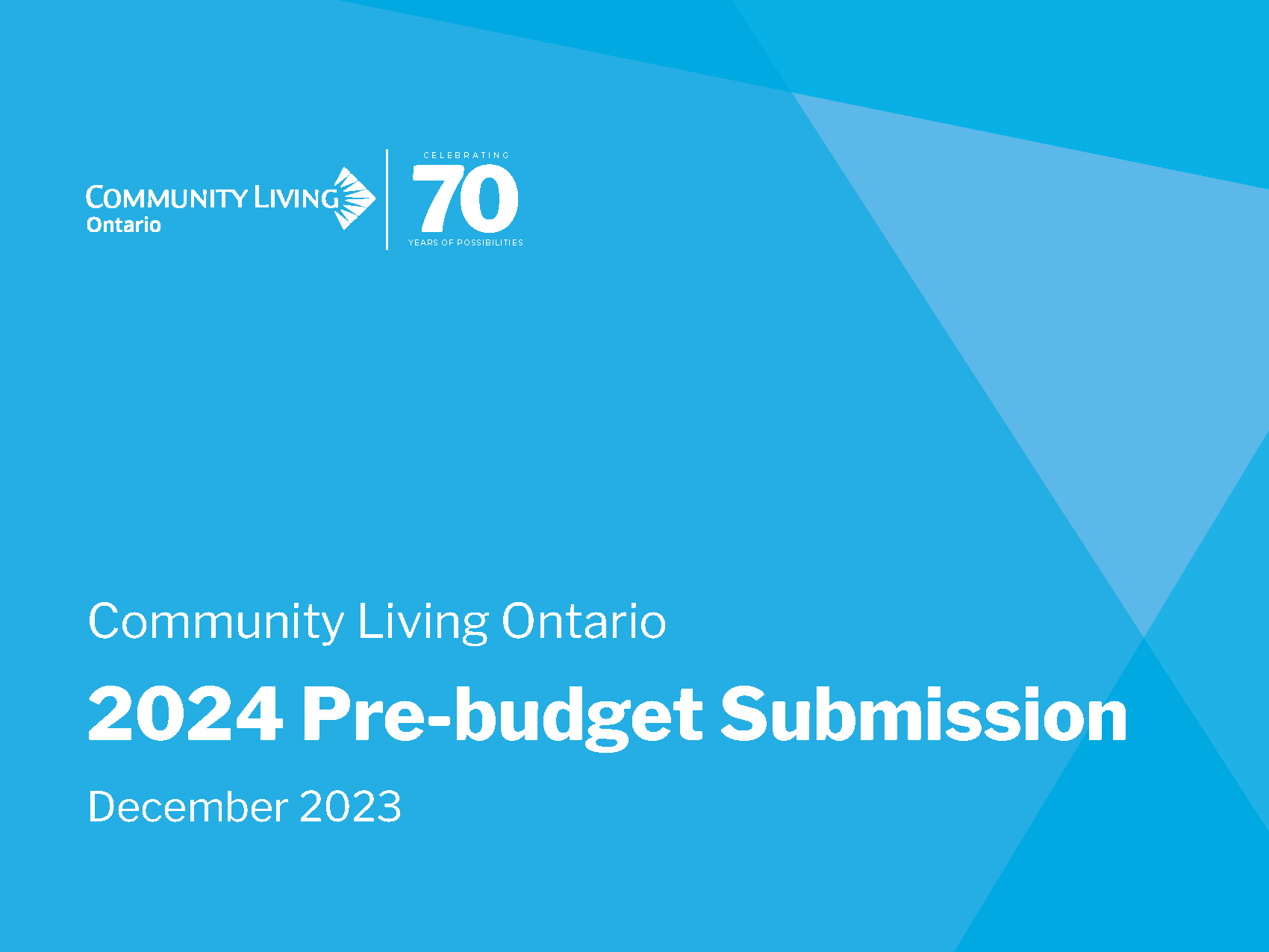
In our pre-budget submission to the provincial government, CLO is calling for an immediate base budget increase of five percent for developmental service agencies. Additionally, we are calling for a five percent increase to Passport and Special Services at Home budgets.
The submission is part of our #5toSurvive campaign, calling attention to critical underfunding of our sector. If you agree with our recommendations, please forward the document to your MPP!
Building a Full Life + a Home of One’s Own in the Community
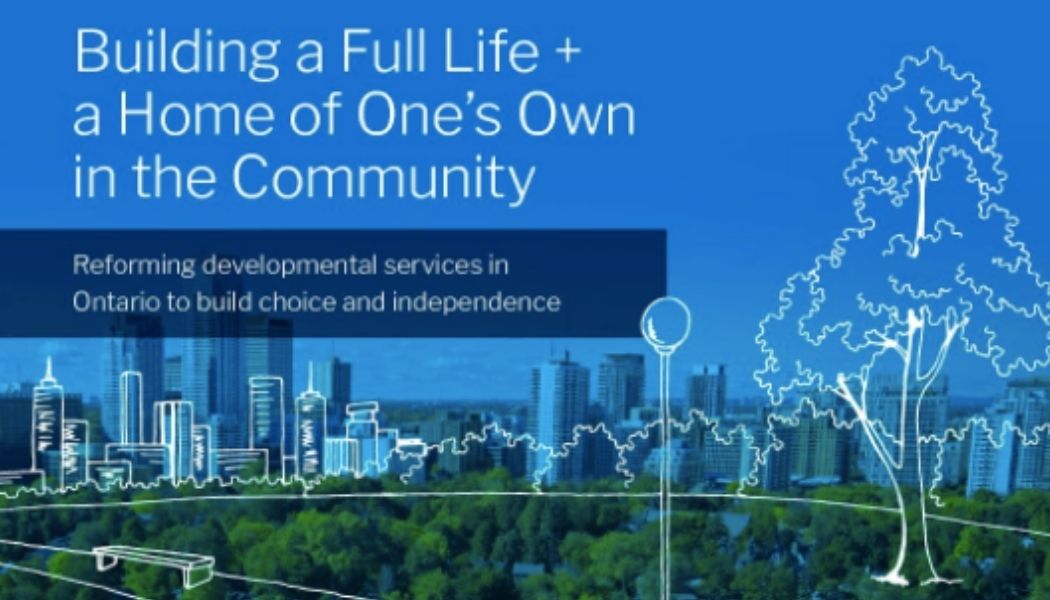
Housing Solutions
Innovations in Housing for People Who Have an Intellectual Disability
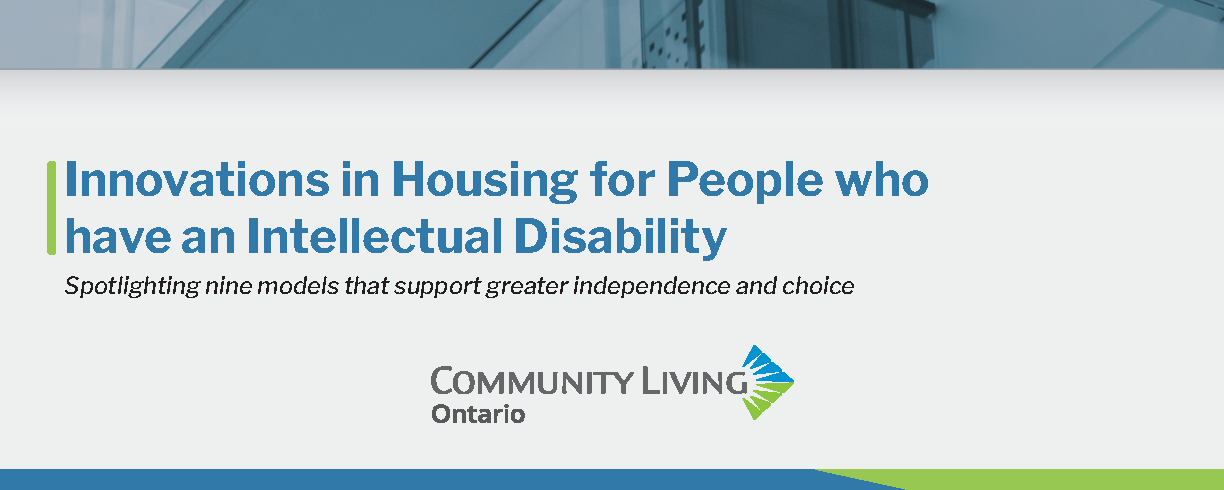
Increasing the Supply of Small-Scale, Individualized, Communiy-Based Housing for People Who Have Intellectual Disabilities

With federal & provincial governments investing billions of dollars in affordable housing, now is a perfect moment to make a collective push to increase the availability of small scale, community-based housing for people who have intellectual disabilities in Ontario. CLO is releasing a strategy and advocacy guide for self-advocates, family members, developmental service organizations, and other supporters. The guide offers many suggestions about what advocates can do to fill the huge gap in our communities, by increasing the supply of housing that supports health and quality of life.
The Myth of Economies of Scale in Developmental Services
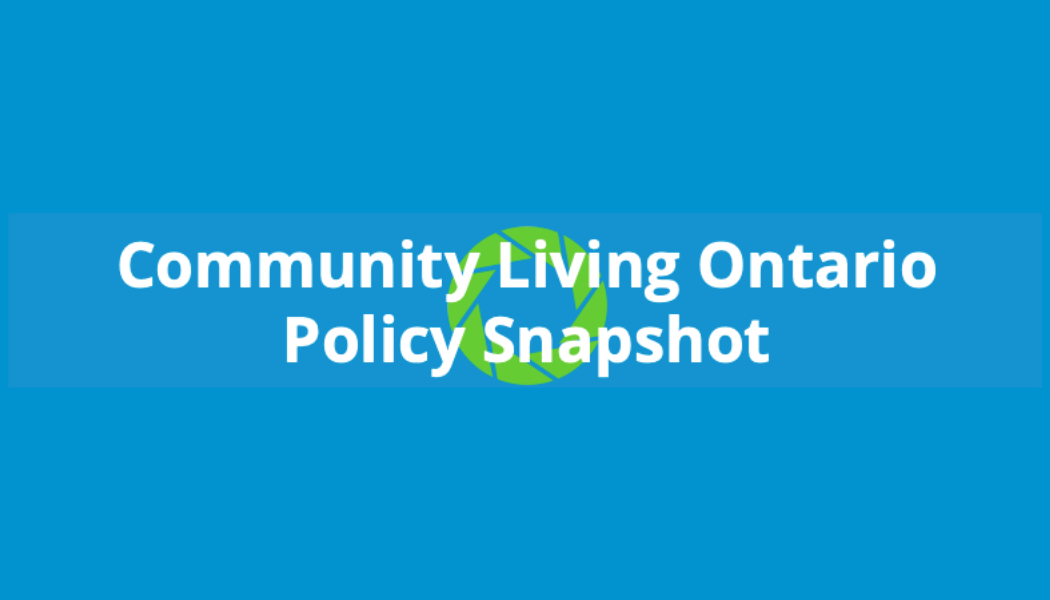
Protecting People from Transfer to Long-Term Care
Five Ideas about Housing for People Who Have Intellectual Disabilities
People who have intellectual disabilities are increasingly demanding more choice & control in where they live. This document offers five key areas for change as we work to build the supply of housing in Ontario.
Separating Housing from Disability Supports: An Idea Whose Time Has Come?
Long-Term Care Is not a Solution for Younger Adults with Disabilities
Individualized Funding
Direct Funding for Developmental Services in Ontario: A Path Forward

Registered Disability Savings Plans
Red Tape, Human Rights, and Registered Disability Savings Plans in Ontario: Part 1
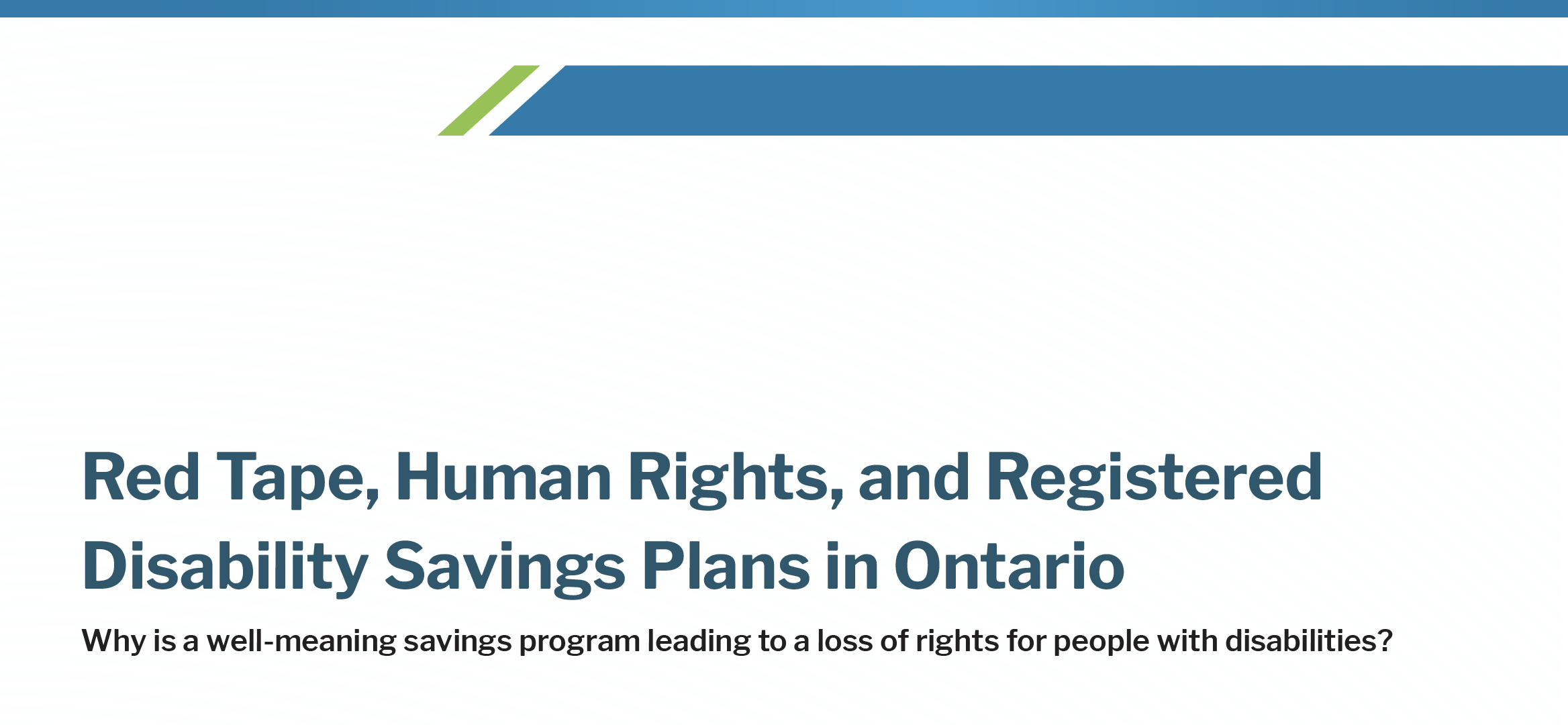
Many people with intellectual disabilities in Ontario are beneficiaries of Registered Disability Savings Plans, where a family member is the RDSP ‘plan holder’ – in other words, they are responsible for managing the RDSP with the beneficiary. We are now seeing situations where plan holders have died or become unable to manage the RDSP – leaving beneficiaries without a plan holder. This raises serious risks for people, including the risk of falling into guardianship.
In our new policy brief, CLO presents a straightforward solution to this problem – a solution that protects people’s financial health while respecting their rights. Read the full brief at the link below.
Red Tape, Human Rights, and Registered Disability Savings Plans in Ontario: Part 2
